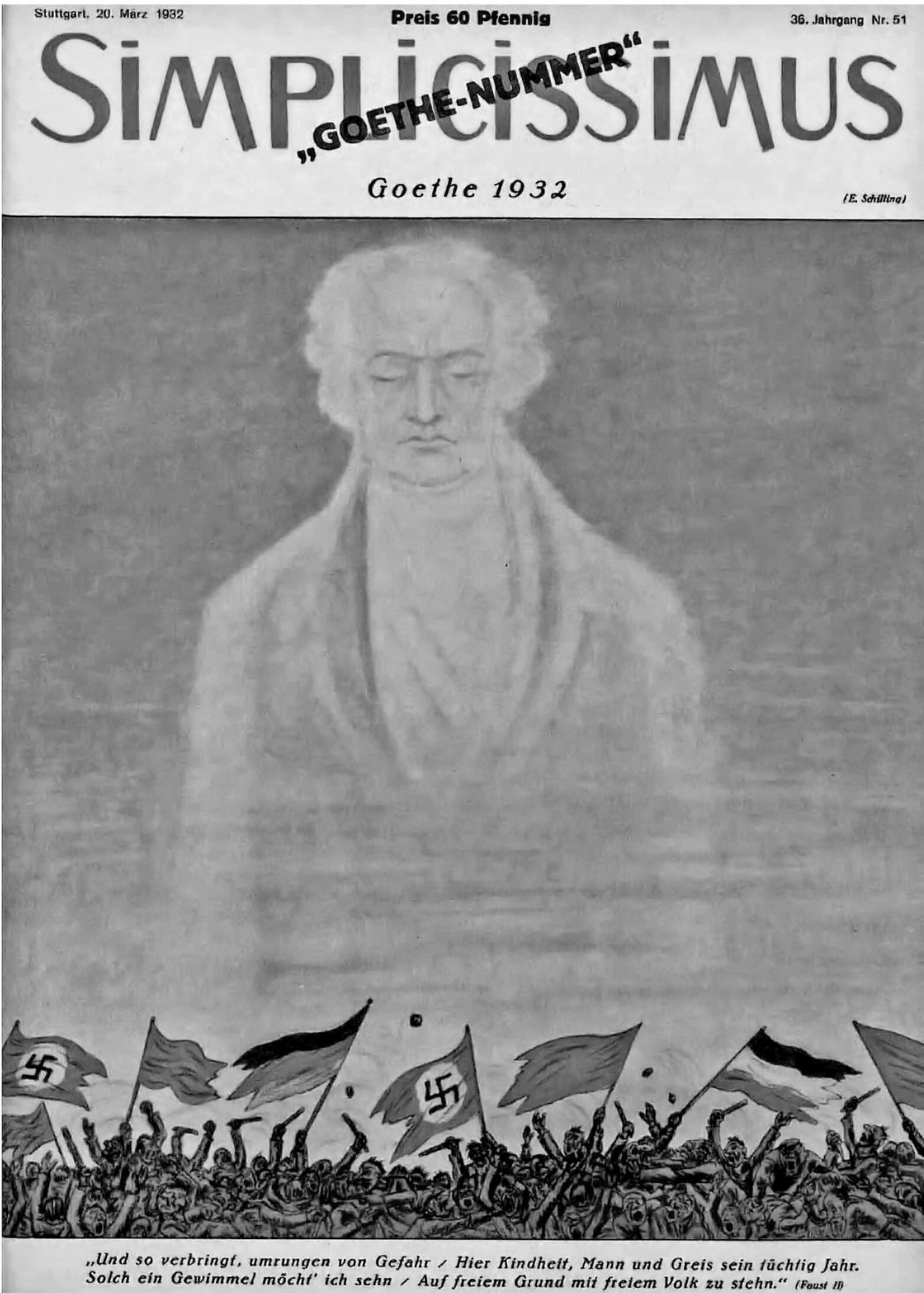
In March 1932, the 100th anniversary of Johann Wolfgang von Goethe's death was solemnised.
Seemingly unaffected by the political events of the day, the "spirit of Weimar" was celebrated. Thomas Mann described his stay: "The mixture of Hitlerism and Goethe was quite strangely touching. Weimar is a centre of Hitlerism. [...] The type of young men who strode through the city with indefinite determination and greeted each other with the Roman salute dominated the city."
On the occasion of the anniversary, work also began on the long-planned extension of the Goethe
National Museum. The architect Heinrich Tessenow, who was appointed in 1931 and who had converted Schinkel's Neue Wache in Berlin into the Reich Memorial to the Fallen of the First World War, was politically controversial. Wilhelm Frick, later Reich Minister of the Interior, labelled him an "architect alien to the Reich". In the end, the originally rejected designs by the now deceased architect Walter Voigt were realised. On Hitler's instructions, more than half of the required funds came from the finances of the Reich. A plaque was placed in the museum with the inscription: "Extension created through the generous support of the Führer Adolf Hitler in the third year of his reign, inaugurated on Goethe's birthday in 1935". In the museum's stairwell, an installation consisting of four wooden boxes and a photographic work by Naomi Tereza Salmon can be seen today, which refers to the loss of cultural values in the "Third Reich". The crates were made in 1942 by inmates of the Buchenwald concentration camp and were intended for pawning off exhibits "worthy of protection" from the Goethe National Museum.
